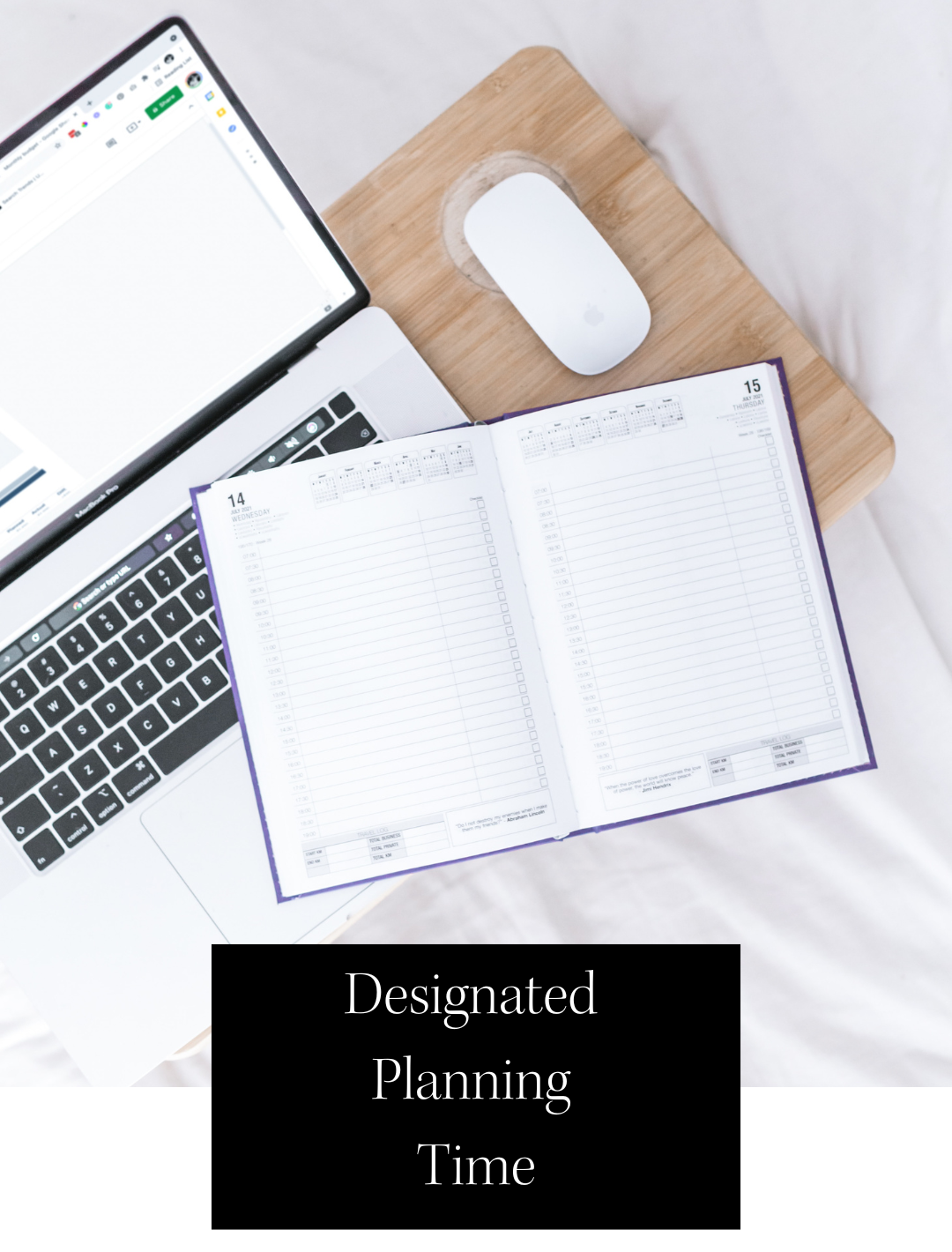Designated Planning Time
Do you have a specific time that you sit down to plan your days and weeks? If not, that may be what is preventing you from achieving your goals and feeling like you’re barely keeping your head above water.
In this week’s episode I’m sharing:
What designated planning time is
Why it is important and the benefits
How to do it!
What is designated planning time?
Designated planning time is time that you set aside each week to plan the upcoming week (or weeks). I prefer to plan two weeks in advance. On a daily basis the majority of time I have my calendar up so I know exactly what I need to be doing at any give time. I also spend 5 minutes at the start of the day and at the end of the day assessing what I got done, what still needs to be done, and anything that needs to be shifted.
Designated planning time can be as little as 30 minutes a week.
Why is it important?
Setting aside time to plan your upcoming week allows you to know what is important to you and what is not. It is an opportunity for you to budget how you want to spend your time. It allows for you to be proactive with your schedule rather than reactive.
How to start to implement designated planning time:
Start small, know your process and build consistency.
Pick a day of the week that works best for you. You can start at the beginning of the week or at the end of the week. I used to plan on Sundays but then learned I didn’t like needing to commit to something on Sunday evenings and if we had plans or were traveling it was hard to stick to that day. I then tried Mondays but oftentimes felt a little anxious going into the week not having planned it so for me I decided to do it at the end of the week. My end of the week is Thursday. Every Thursday afternoon I take time to go through my planning process.
I ask myself “What are the 3 results I want to produce for the month?” Then based on my three results, I ask “What are the 3 results I want to produce for the week?” From there I create my list, and assign time blocks on my calendar. Asking these questions helps your brain focus on what is most important to you. If you’re not sure what you need or want to accomplish for the month, skip that question and start with what are 3 results I want to produce at the end of the week? If the number 3 feels overwhelming, drop it down to 2 or 1.
Again start small, if committing to 30 minutes a week seems like a lot right now, start with 15 minutes. If three results are too much, start with 2. Make it easy so that you can take action, complete the task and build consistently.
For this week, decide right now how much time and when you’re going to sit down to plan your following week. Ask yourself those two questions.
Take a picture and tag me over on Instagram at @attentionaudit. I’d love to see you use it in action!
Until next week, take care my friend!
Free Resources:
Download my Productivity Playbook for Busy Moms
Download my 10 Home Systems Checklist for Busy Moms
